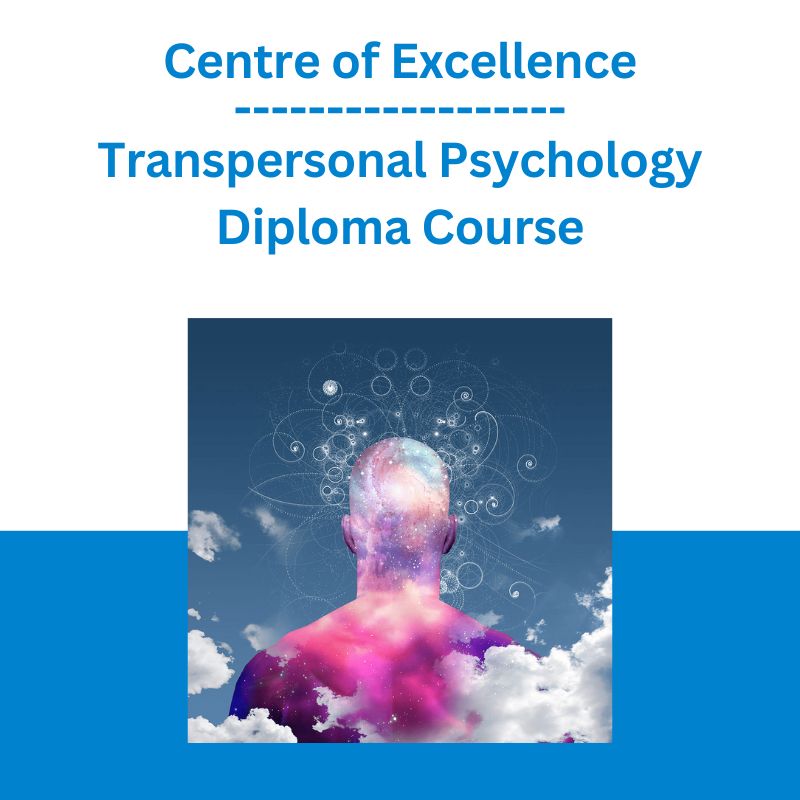*** Proof of Product ***
Exploring the Essential Features of “Centre of Excellence – Transpersonal Psychology Diploma Course”
What Will You Learn?
Discover transpersonal psychology – a discipline concerned with “the study of humanity’s highest potential, with the recognition, understanding, and realisation of unitive, spiritual, and transcendent states of consciousness”. Explore the underlying theories and how they are put into practice by therapists, it’s history and related disciplines.
Setting the foundations for the rest of the course, you will first learn what transpersonal psychology really is and how it operates, as you are guided through its five key themes: states of consciousness, highest/ultimate potential, beyond the ego/personal self, transcendence, spirituality. You’ll also discover the discipline’s five guiding principles, as outlined by the International Transpersonal Association: irreducibility of consciousness, integrity in the spiritual path, challenge of transformation, global synergy, forward through exploration.
Your understanding of transpersonal psychology is strengthened, as you are guided through its history. You’ll explore contributions from important figures such as William James, Carl Jung, Abraham Maslow, Grof, Sutich, Ken Wilber and Michael Washburn, and see how the discipline developed throughout the 1970s, 80s and 90s.
With the foundations of knowledge set in place, you’ll move on to discover in-depth theories on the stages of development and transformation of the human psyche, as you are guided through the work of Robert Kegan, Susanne Cook-Greuter, and Bill Torbert.
As they include disciplines that use both psychology and spirituality to explain reality and consciousness, psychospiritual traditions and theories are explored in detail. You’ll learn about the importance of psychospiritual traditions in transpersonal psychology, what esoteric schools are, and how modern science is proving the link between psyche and spirit. You’ll also look at psychospiritual theories, focusing on the work of Wilber-Combs Matrix and two of Carl Jung’s ideas: active imagination and shadow work.
Studying this course, you’ll also learn about other disciplines that are related but separate from transpersonal psychology. Broadening your awareness of similar disciplines, you’ll gain a brief overview of humanistic, holistic, and positive psychologies.
In addition to the learning the theories, you’ll also look at how transpersonal psychology is applied in therapy. The course takes you through the role of a transpersonal therapist, the techniques and approaches used, personal qualities needed, qualifications required and the professional organisations that you can become a member of. Giving you a clearer idea of how the discipline is used in therapy, the course concludes with 3 case studies.
Course Syllabus
What will I learn on the course?
Module 1 – Introduction to Transpersonal Psychology
6 parts
Introduction
Part 1: What is Transpersonal Psychology?
Part 2: Five Key Themes
Test Your Knowledge
Key Learning Points Exercise
Module 1 Assessment
Module 2 – History of Transpersonal Psychology
7 parts
Part 1: William James
Part 2: Carl Jung
Part 3: Abraham Maslow
Part 4: Grof & Sutich
Test Your Knowledge
Key Learning Points Exercise
Module 2 Assessment
Module 3 – History of Transpersonal Psychology Part 2
5 parts
Part 1: 1970s Developments
Part 2: Michael Washburn
Test Your Knowledge
Key Learning Points Exercise
Module 3 Assessment
Module 4 – The Guiding Principles of Transpersonal Psychology
5 parts
Part 1: Irreducibility of Consciousness
Part 2: Global Synergy
Test Your Knowledge
Key Learning Points Exercise
Module 4 Assessment
Module 5 – Stages of Development and Transformation
6 parts
Part 1: Integral AQAL
Part 2: Constructive Developmental Theory
Part 3: Bill Torbert
Test Your Knowledge
Key Learning Points Exercise
Module 5 Assessment
Module 6 – Psychospiritual Traditions
5 parts
Part 1: Importance of Psychospiritual Traditions
Part 2: Esoteric Schools
Test Your Knowledge
Key Learning Points Exercise
Module 6 Assessment
Module 7 – Psychospiritual Theories
5 parts
Part 1: States of Consciousness
Part 2: Jung – Shadow Work
Test Your Knowledge
Key Learning Points Exercise
Module 7 Assessment
Module 8 – Related Viewpoints
5 parts
Part 1: Humanistic Psychology
Part 2: Holistic Psychology
Test Your Knowledge
Key Learning Points Exercise
Module 8 Assessment
Module 9 – Transpersonal Psychology in Practice
6 parts
Part 1: The Role of a Transpersonal Therapist
Part 2: Techniques and Approaches
Part 3: Qualifications Required
Test Your Knowledge
Key Learning Points Exercise
Module 9 Assessment
Module 10 – Case Studies
7 parts
Part 1: Case Study 1
Part 2: Case Study 2
Part 3: Case Study 3
Test Your Knowledge
Key Learning Points Exercise
Conclusion
Module 10 Assessment
Who Would Benefit from This Course?
The Transpersonal Psychology Diploma Course will benefit anyone interested in the connection between the mind and spirituality, and the issues that can occur with both. You may be a counsellor or therapist, looking to branch out into transpersonal therapy, or currently untrained and looking to take your first steps.
Whether you wish to work in this area or not, studying this course will open your mind, expand your self-awareness, and help you to see people’s strengths and potential, instead of seeing them as having something wrong that needs to be fixed.
Please see the full list of alternative group-buy courses available here: https://lunacourse.com/shop/









